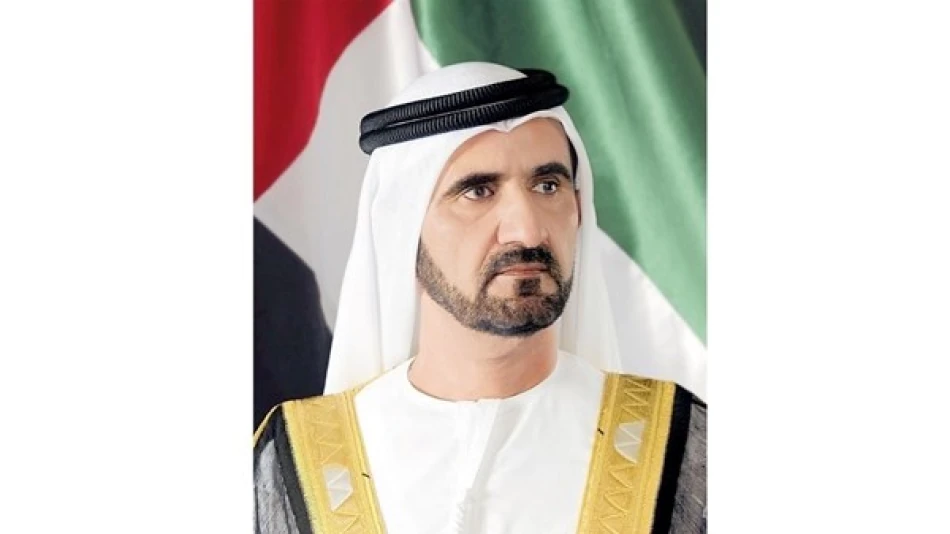
Dubai Ruler Approves Over $540M in Housing Grants for 2,971 Emirati Families
UAE Approves $544 Million Housing Package for Nearly 3,000 Citizens in Major Welfare Push
The UAE has approved housing assistance worth over 2 billion dirhams ($544 million) for 2,971 Emirati citizens, marking one of the largest single housing welfare allocations in recent years. The move underscores the Gulf state's commitment to ensuring homeownership remains accessible for nationals amid rising property costs and economic diversification efforts.
Strategic Investment in Citizen Welfare
Sheikh Mohammed bin Rashid Al Maktoum, UAE Vice President, Prime Minister, and Ruler of Dubai, personally approved the comprehensive housing package, according to an official announcement from the UAE Government Media Office. The approval represents approximately $183,000 per citizen on average, reflecting the substantial financial commitment behind the initiative.
This housing support comes at a critical time when Dubai and broader UAE property markets have experienced significant price appreciation, with residential values rising over 20% in key areas during 2023 alone.
Regional Context and Competitive Positioning
Gulf States' Housing Strategies
The UAE's approach mirrors broader regional trends where Gulf governments prioritize citizen welfare through housing programs. Saudi Arabia's Vision 2030 includes ambitious homeownership targets, while Qatar expanded housing assistance ahead of the 2022 World Cup. However, the UAE's per-capita allocation appears among the most generous in the region.
Economic Diversification Support
Housing security for nationals serves a dual purpose: maintaining social stability while supporting the UAE's economic transformation. As the country reduces oil dependency and attracts international talent, ensuring Emirati citizens benefit from growth through homeownership becomes increasingly strategic.
Market and Investment Implications
The substantial housing injection could have several market effects. Construction and real estate sectors are likely to see increased demand, potentially benefiting publicly traded developers and building materials companies. The program may also help sustain property market momentum in secondary cities beyond Dubai and Abu Dhabi.
For foreign investors, the move signals continued government support for real estate markets, though it specifically targets the Emirati segment. This differentiated approach maintains the UAE's appeal to international buyers while protecting citizen interests.
Broader Economic Strategy
The timing suggests coordination with the UAE's broader economic policies. As the country positions itself as a global financial hub and attracts remote workers through visa programs, maintaining citizen satisfaction through tangible benefits like housing becomes essential for social cohesion.
The housing package also demonstrates fiscal capacity — with oil revenues supporting such large-scale welfare spending even as the UAE invests heavily in renewable energy and technology sectors.
This housing initiative represents more than welfare spending; it's a calculated investment in maintaining the UAE's social contract while navigating rapid economic change and regional competition for talent and investment.
Most Viewed News

 Layla Al Mansoori
Layla Al Mansoori






